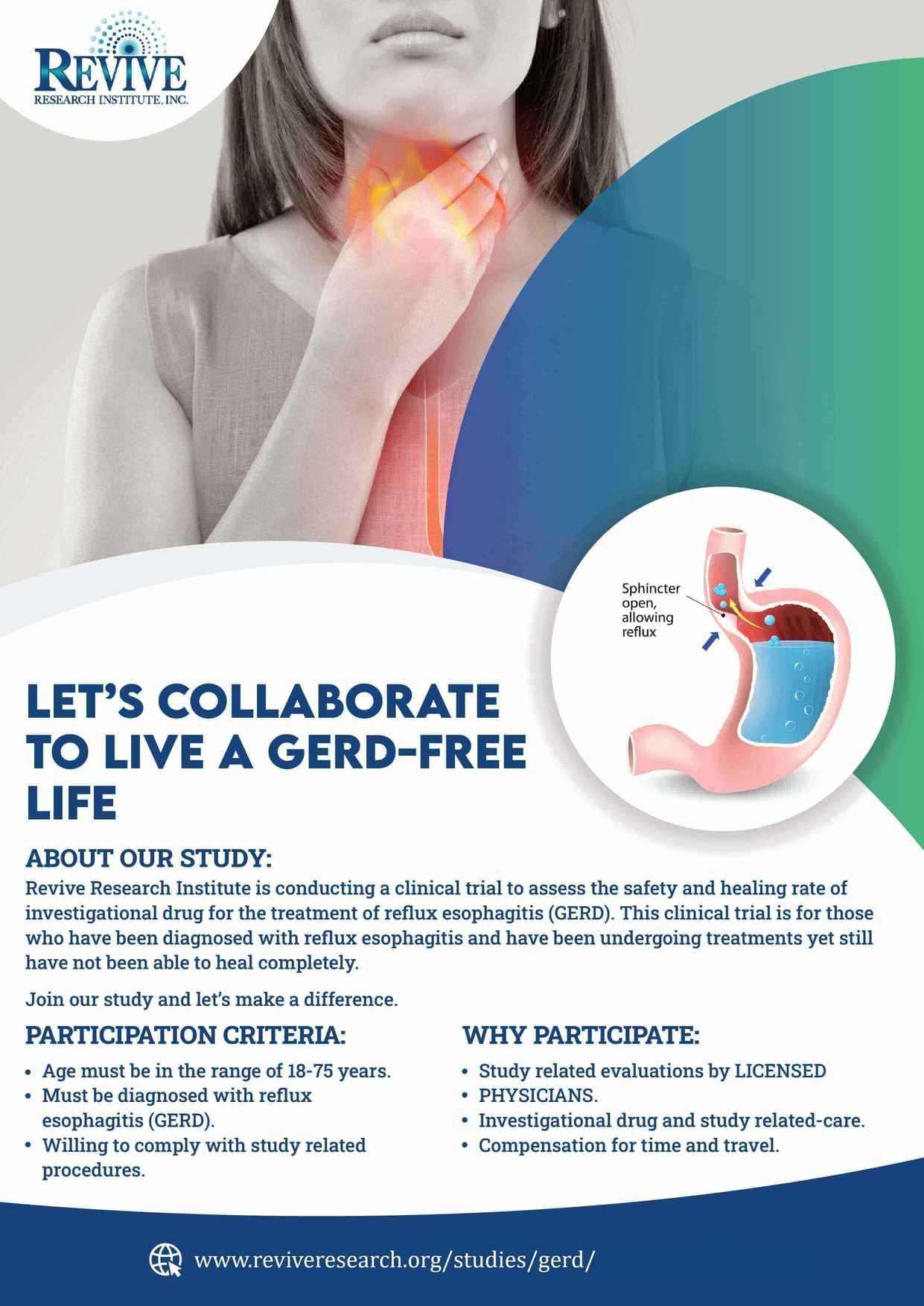Don’t Let GERD Restrict You
GERD Clinical Trials May Be Able To Provide You With Options!
Gastroesophageal Reflux Disease, commonly known as GERD, happens when gastric content moves back up into the esophagus. This phenomenon is also known as regurgitation.
This condition is uncomfortable, and causes nausea, chest pain, difficulty in swallowing chronic cough and bad breath. If left untreated, GERD can lead to bleeding, ulceration and chronic scarring.
Revive Research Institute is conducting Clinical Trials to help you relieve these symptoms and GERD complications with novel, potential treatment options.
To be an able to join this study you need to:
- Be 18 years or older
- Have a confirmed diagnosis of GERD
- Comply with the study procedures
Be a part of our clinical trial and let our physicians relieve your symptoms and ease out your life. The goal of the study is to observe the safety, efficacy and tolerability of the study medication that may be able to help with your symptoms of GERD.
*If you qualify and decide to participate in the GERD Clinical Trials, you will receive study-related care and treatment free of cost to both you and your insurance. Our team of Gastrologists, nurses and research staff will provide study-related care and will take care of your health throughout your participation in the study.
*All participants will be monetarily compensated for their time and travel through their participation in the research study.


